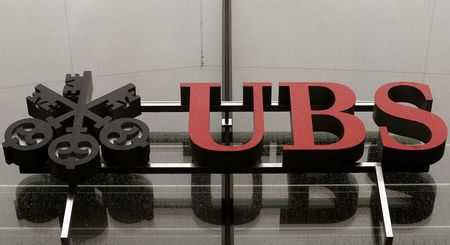By Carolyn Cohn
LONDON (Reuters) - UBS Wealth Management has added to its overweight position in North American equities and cut back on European stocks, encouraged by recent U.S. earnings and growth data, the world's largest wealth manager said on Tuesday.
"We have continued to be overweight in equities, and this month we took down our overweight in European equities and moved that to our existing overweight in the U.S. and Canada," Mark Haefele, global chief investment officer at UBS Wealth Management, told Reuters in an interview.
"The earnings season in the United States was much better than Europe, second-quarter GDP growth was 4 percent. Europe did not grow in those three months."
UBS is the world's largest wealth manager with $2.1 trillion (1.3 trillion pounds) under management.
Haefele said a larger proportion of U.S. earnings results exceeded analysts' expectations, while company valuations were not stretched.
As markets brace for higher interest rates in Britain and the United States, UBS was keeping its underweight position in government bonds, Haefele added, even though that position had not played out well so far this year.
"We did not think that bond yields were going to go too low but the first half proved us wrong," he said.
Investors think the European Central Bank may loosen policy as early as next week, after recent weak growth and inflation data and dovish comments from ECB chief Mario Draghi.
But Haefele did not expect the same level of stimulus in Europe as the United States has enjoyed, after three rounds of bond-buying "quantitative easing" from the Federal Reserve.
"The ECB is not engaging in QE. The Fed has established its bona fides; the ECB has done a lot of talking, but real measures – we have not seen a lot of that," he said.
Geopolitical risks from the Ukraine crisis were also hurting Europe, Haefele added, though the gains made by Islamic State in Iraq had not caused a spike in global oil prices, a potentially greater risk to the global economy.
Haefele said flows data supported expectations of a further shift by the world's richest people into equities, with UBS Wealth Management's clients continuing to keep up to 30 percent of their holdings in cash, little changed from the aftermath of the global financial crisis.
"There is still a lot of fear out there."

At the same time, Haefele said there was a desire to diversify away from major markets in search of yield, encouraging allocations of up to 15 percent in alternative assets such as hedge funds, property and private equity.
(Editing by Hugh Lawson)
